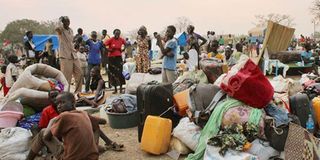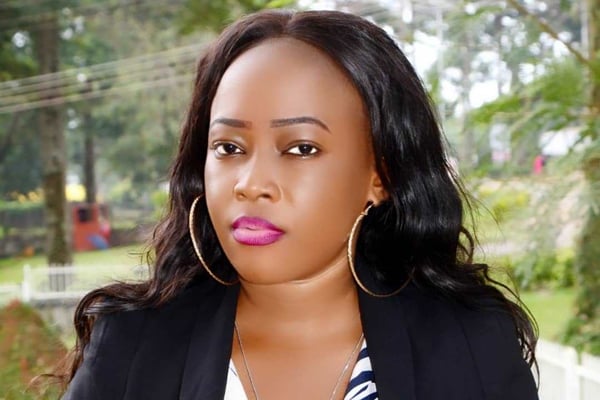Refugees in Uganda at high risk of sexual and gender-based violence – study

Refugee children in Adjumani District in northern Uganda. PHOTO | FILE
What you need to know:
- Dr Liebling also noted that survivor refugees in settlements don't get access to psychological health services and treatment because special services are not available due to limited funding.
Researchers from Coventry University, UK have revealed that South Sudanese refugees in the northern Uganda camps are at high risk of Sexual and Gender-Based Violence, torture experiences, and health-related concerns, among others.
The revelation was made during the review on Health and Justice Responses to South Sudanese Refugees in Northern Uganda who survived Sexual and Gender-Based Violence (SGBV) and torture, at Uganda Virus Research Institute headquarters in Entebbe on November 7, 2023.
The research, carried out in three settlement sites of Pagirinya, Mungula, and Bidi Bidi was led by Prof Hazel Barrett and Dr Hellen Liebling of the Centre for Trust, Peace and Social Relations from Coventry University, UK, who are also long-term collaborators of Prof Eugene Kinyanda, head of the Mental Health Focus Area of the MRC/UVRI & LSHTM Uganda Research Unit.
According to Dr Liebling, refugees came to Uganda for safety after experiencing abuses, but there are “challenges in settlement areas although the Ugandan organisations are doing their best with a very humane policy, which should be applauded. The major challenges relate to security, health provision, sexual violence and incidents of abduction of children.”
She added: “Most of the refugees we spoke to are not registered because of concern that perpetrators may come back from South Sudan and cause them problems. So most of the refugees don't register for their own safety."
Dr Liebling also noted that survivor refugees in settlements don't get access to psychological health services and treatment because special services are not available due to limited funding.
Prof Hazel Barrett noted that research evidence showed that extending the use of mobile courts would improve access to restorative justice and compensation locally to survivors since most of them preferred to use traditional forms of justice (informal justice) and this right of choice should be respected.
"The mechanisms of traditional justice need to be better understood and integrated into the entire justice process because evidence showed that integration between formal and informal justice; physical and emotional well-being services is essential for the recovery, restoration of dignity and building the resilience of refugee survivors of sexual and gender-based violence and torture," she noted.
Prof Pontiano Kaleebu, the Director of the Uganda Virus Research Institute, noted that the study was undertaken in 2018 in collaboration with the Refugee Welfare Councils, Refugee Law Project, and Kitgum Women's Peace Initiative, and 241 South Sudan Refugees were interviewed.
The Head of the Mental Health section at Uganda Virus Research Institute (UVRI), Prof Eugene Kinyanda lauded Dr Liebling for the long-term collaboration with UVRI that started way back in the 1980s to document the psychological and medical effects of war in Luwero, Gulu, and Southern Sudan, among others.
He appreciated the government of Uganda for opening doors for refugees from all over Africa which makes Uganda one of the countries with the biggest refugee population in the world, with over 1.4 million refugees.





